Coconut oil, or coconut butter, is made up of extracted oil from the meat and/or milk of the coconut fruit. At room temperature or colder, it turns into a solid, and when heated it melts into a liquid form.
It’s become a trendy ingredient that’s spouted to have health benefits specifically for keto or paleo diets, but medical professionals have noted to be cautious of consuming too much coconut oil because it has the potential to raise your cholesterol levels.
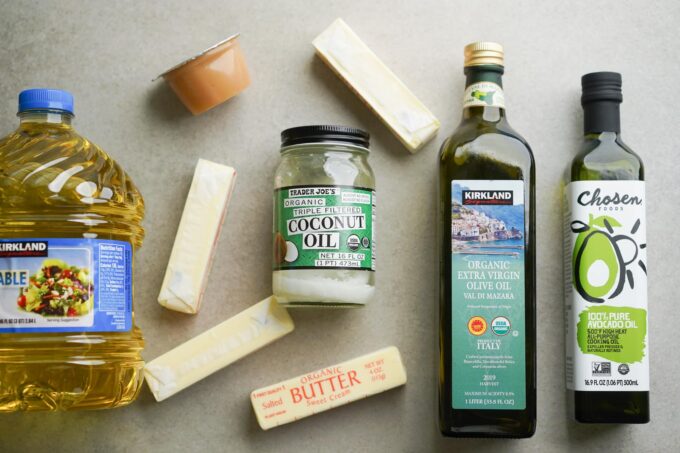
It’s used in many different ways like as a topical skincare product and of course cooking. Coconut oil is a great ingredient to use for vegan recipes or when you want a healthier alternative when cooking. Some recipes you can use coconut oil in are cassava cake, bibingka, or even making bánh xèo.
Sometimes you don’t always have coconut oil on hand to make recipes healthy or vegan. Below are some ways to substitute coconut oil when you need it based on different types of recipes.
1. Avocado oil – best for healthy, all-around use
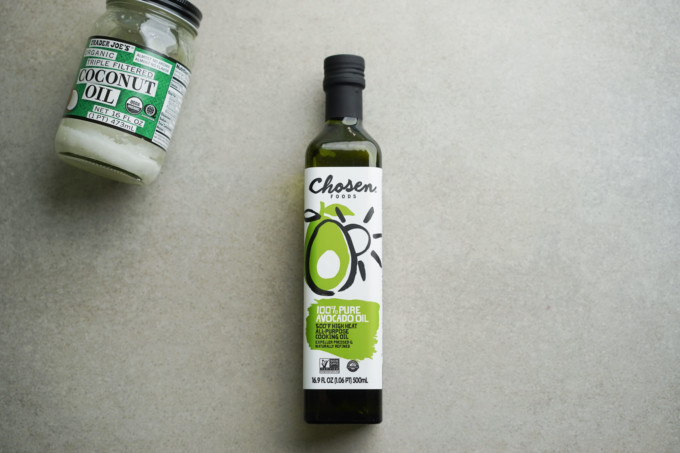
One of the best substitutes for coconut oil is using avocado oil. It’s a neutral-flavored cooking oil with a high smoke point so it’s great for a 1:1 substitution for stir-frying, roasting, and frying recipes. Avocado oil is full of health benefits like reducing cholesterol and a good source of antioxidants.
The only downside to using avocado oil is that it can be quite expensive compared to coconut oil or other options, so you wouldn’t want to use it for recipes that require large quantities of oil (like deep-frying).
When purchasing avocado oil, try to find reputable brands like Chosen or Marianne’s brand for avocado oil because a recent study has shown some brands use fillers or were found to be rancid.
2. Vegetable oil – affordable, great for sauteing, stir-frying, and deep frying
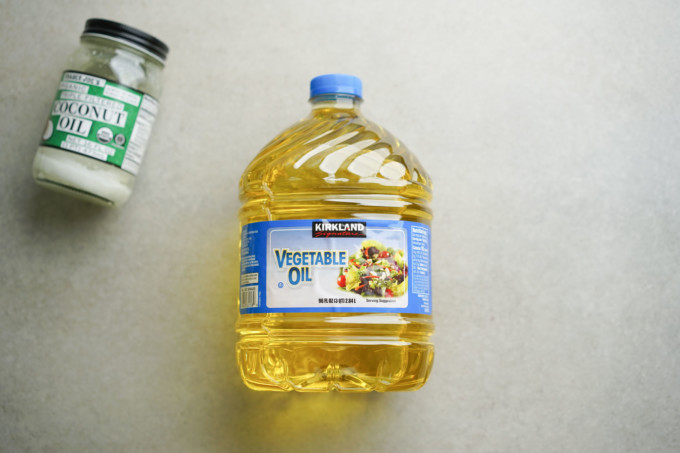
Can you substitute vegetable oil for coconut oil? Most of the time, yes. It’s a good replacement for coconut oil because it’s got a neutral flavor (and won’t interrupt other flavors in your cooking) and it’s also more affordable than avocado oil. While it’s not packed with health benefits like avocado oil, it does have a high smoke point making it good for deep-frying (like fried tofu) and everyday sauteing and stir-frying dishes (like yaki-udon).
3. Extra virgin olive oil – best for low or no heat cooking
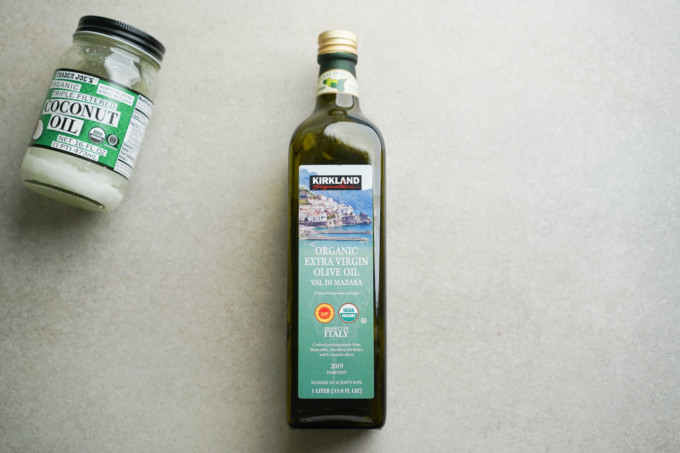
If you have a recipe that requires low heat or no-heat cooking (like salad dressing or pesto), you can substitute extra virgin olive oil for coconut oil. Olive oil is also used for other non-food-related recipes similar to coconut oil, like hair and face masks. It’s full of health benefits like oleic acid that helps reduce inflammation and antioxidants that help prevent heart disease. Extra virgin olive oil is also a 1:1 ratio for substitution.
4. Butter – best for baking

Butter is an interesting substitution for coconut oil because they have similar physical qualities, in that they are both solid at colder temperatures and certain room temperatures, but they also melt at higher temperatures. They both have high quantities of fat and therefore, can be used interchangeably for certain recipes like baking ube crinkle cookies.
Note that when you use butter in place of coconut oil, you will have a richer and fattier flavor profile in your baked goods–which is a win-win situation for me!
5. Applesauce – better for health & vegan baking
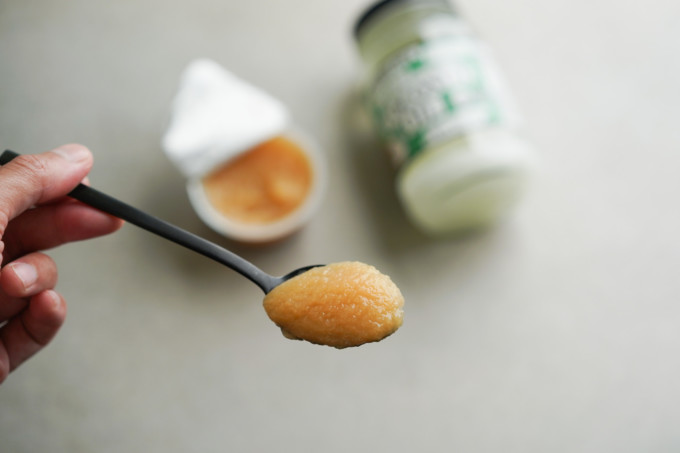
You may be wondering if you can substitute applesauce for coconut oil–and the answer is yes! If you are looking for a vegan baking substitute for coconut oil, then unsweetened applesauce may work for you. Applesauce has a lot of moisture so this will replace the moisture in the oil, however, sometimes there might be too much moisture and baked goods can come out a little spongy.
To offset this texture, use half applesauce and half alternative oil (like avocado oil) for one serving of coconut oil. Since comparatively coconut oil has such high fat content, when you sub applesauce you’ll have less fat, but more carbohydrates. Using half oil and half applesauce will give you a similar consistency for coconut oil and it’s still a vegan option.
Also, keep in mind that both coconut oil and applesauce each have their own flavors so using one for the other might change the way your recipe tastes, too.
What oil is the most similar to coconut oil?
Any neutral flavor, vegetable oil is most similar to coconut oil because it’s plant-based and often doesn’t change the way the recipe tastes. For example, you can use avocado oil, grapeseed oil, vegetable oil, and sunflower oil.
Can I use olive oil instead of coconut oil for baking?
While you can technically substitute olive oil for coconut oil when baking because they have similar consistencies when coconut oil is melted and they are both plant-based, I would not recommend it due to olive oil’s flavor profile. This might change the way the baked goods taste. I would more likely use neutral-tasting oils like vegetable or avocado oil.









